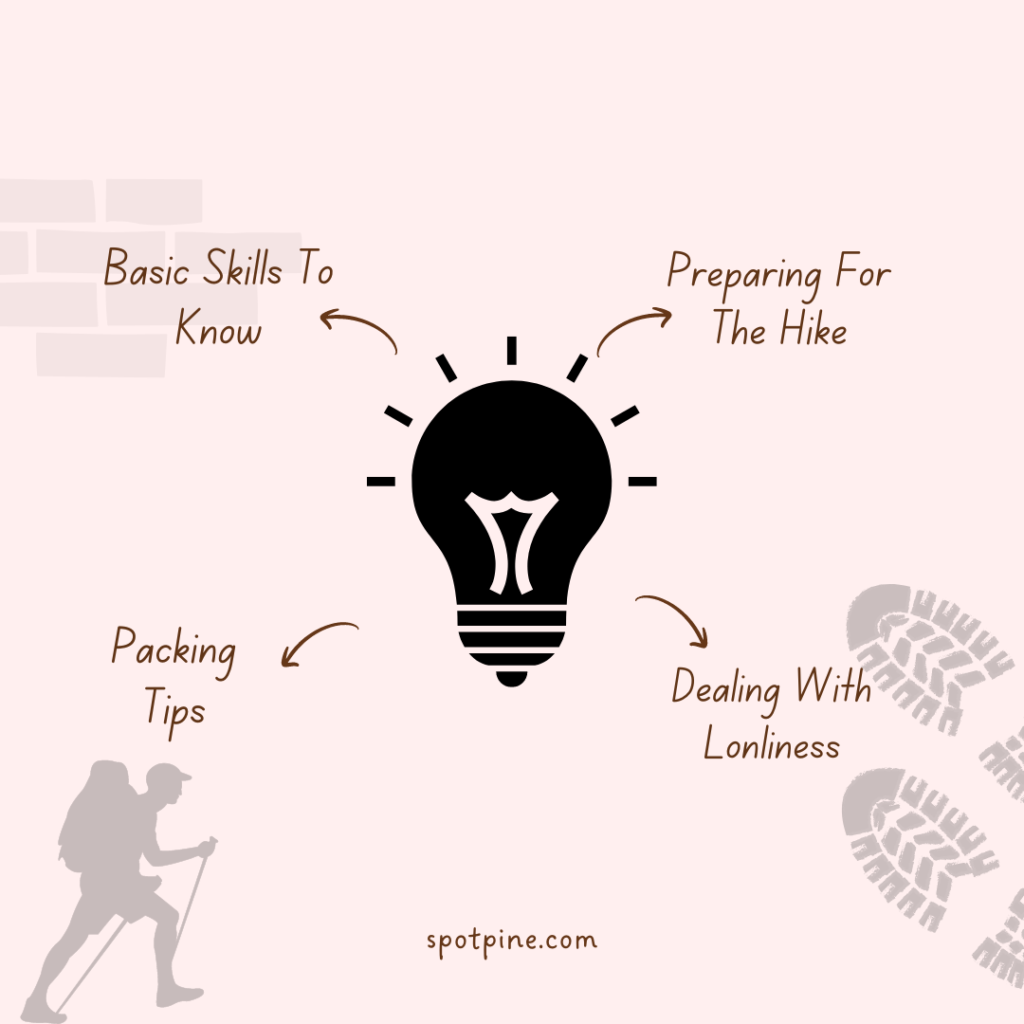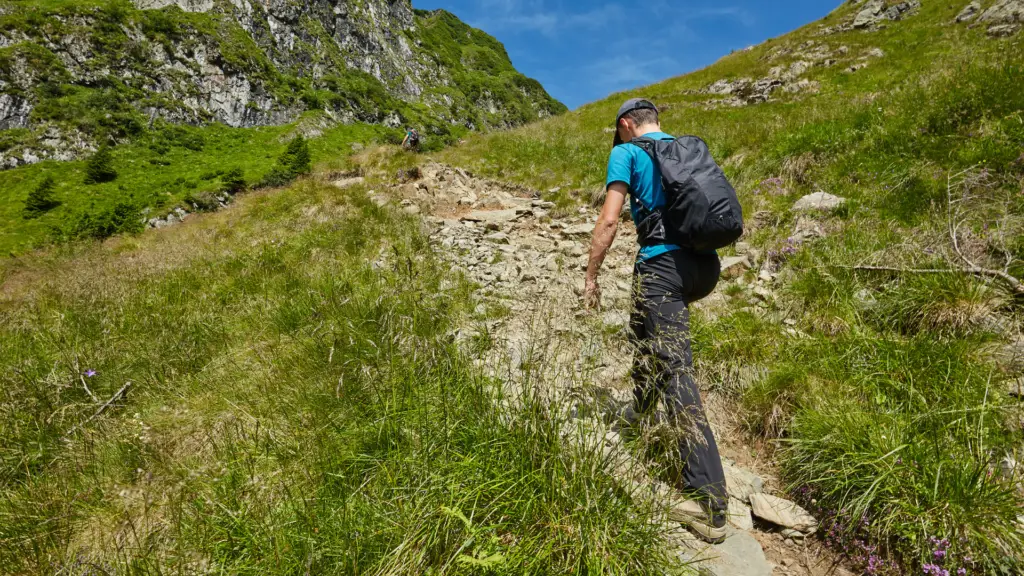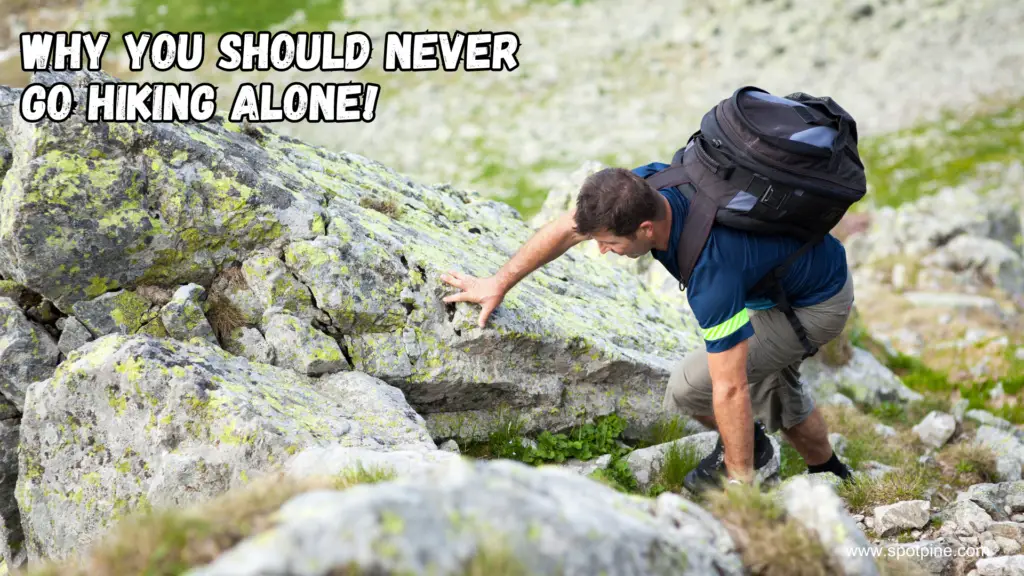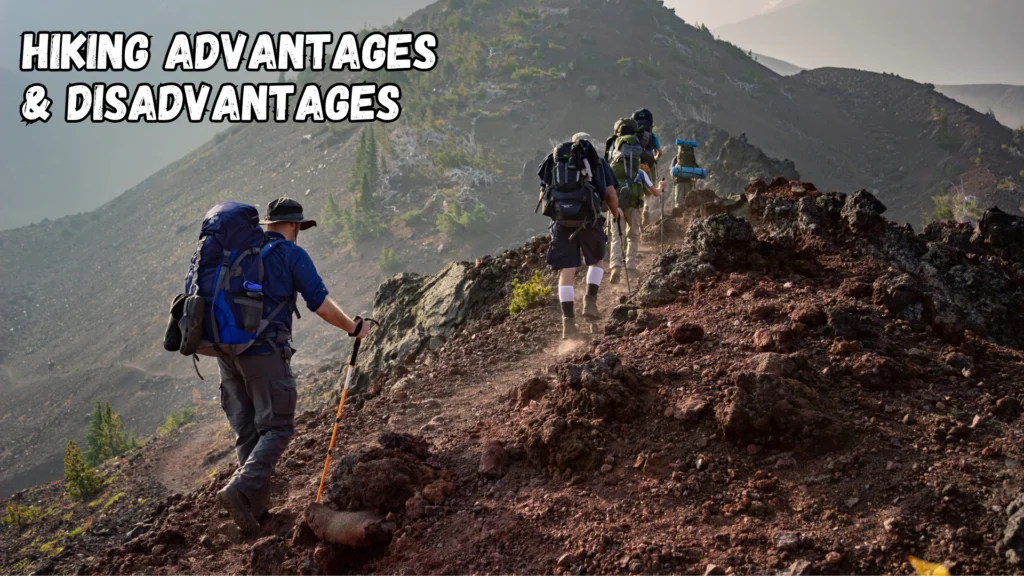Hiking alone is a risky and dangerous behavior, and it is not recommended to venture out alone for safety reasons. Going alone without notifying anyone can be risky, and it is imperative to tell someone where you are going and when you plan to be back.
When planning a hike, it is crucial to remember that nature can be unpredictable, and dangers such as wildlife and accidents can happen unexpectedly. To ensure safety while hiking, it is best to be accompanied by someone or join organized hiking groups.
However, if you decide to go alone, it is essential to have the necessary hiking skills and experience, including basic first aid, navigation, and trail reading. This article will examine several reasons why you should never go hiking alone and provide tips on safety measures to take while hiking alone.
Trip Planning
When it comes to trip planning, hiking alone can be dangerous. Local wildlife, getting injured, and emergency situations can all be more hazardous when hiking without a partner. It’s important to be aware of your surroundings and take precautions before heading out on a solo hike.
Factors to Consider: Before embarking on a hiking trip, it is important to plan ahead and consider a few factors. One important factor is choosing the right trail for your fitness level and experience. You should also check the weather forecast to ensure safe and suitable conditions. Make sure to inform someone of your planned hike and expected return time. Always carry a map, compass, first aid kit, and extra food and water. It is also important to research the local wildlife and any potential dangers. Should an emergency situation arise, know basic first aid and have a plan in place. Following these guidelines can ensure a safer and more enjoyable hiking experience. Remember, it is always better to hike with a companion or group rather than going alone.
Awareness Of Surroundings
It’s important to never go hiking alone because being aware of your surroundings can be difficult without someone else to help. You never know when you may encounter wildlife or sustain an injury, so it’s best to bring a hiking partner along for safety.
According to hiking experts, it is never a good idea to go hiking alone. When hiking solo, you may become less aware of your surroundings, particularly in terms of wildlife and people. To avoid any unwanted risks while hiking, there are a few things that you should keep in mind. First and foremost, always be aware of your surroundings, including local wildlife. Additionally, avoid looking scared or intimidated, as this can attract unwanted attention from people or animals. Another important aspect of hiking safety is carrying trekking poles, which can provide extra support and stability on rough terrain. Before heading out on your hiking adventure, make sure to research the area and understand any potential risks or hazards. By following these simple guidelines, you can ensure a safe and enjoyable hiking experience.
Tips For Solo Hiking
It is important to never go hiking alone for your safety. It’s recommended to let someone know where you’re going and when you plan to be back. Always be aware of your surroundings, avoid looking scared, and carry trekking poles.
In case of an emergency, know what to do and have basic hiking skills and experience.

Basic Skills To Know
Before heading out on a solo hike, it’s important to know some basic skills such as first aid, navigation, identifying edible plants, how to read trails, etc. Learning these skills could save your life.
Preparing For The Hike
Prior to heading out on a solo hike, do some research on the trail you will be taking. Be aware of your surroundings and any potential safety concerns or emergency situations that may arise. Pack plenty of food, water, and proper clothing and gear for the hike and let someone know your itinerary.
Packing Tips
When packing for a solo hike, consider packing lighter than you would for a group hike. Bring essential items such as a map, compass, lightweight stove, and trekking poles. Pack enough food and water to keep your energy up on the trail and prevent dehydration.
Dealing With Loneliness/boredom
Being alone on a hike for an extended period of time can lead to feelings of loneliness and boredom. To combat this, bring a good book or music for entertainment. Take frequent breaks and enjoy the scenery or just sit and meditate for a bit.
Benefits Of Solo Hiking
Solo hiking offers the opportunity for solitude and the freedom to choose your own pace. However, it’s important to be aware of the risks and take necessary precautions such as informing someone of your whereabouts, being knowledgeable about first aid and navigation, and staying aware of your surroundings to avoid injury or getting lost.
Ultimately, solo hiking can be a rewarding experience as long as safety measures are taken.
Solo hiking has numerous advantages, including experiencing freedom and solitude. You can hike at your own pace, stop for breaks when you feel like it, take pictures, or simply enjoy the beautiful natural surroundings without any disturbance. Socializing is also an option on your terms whenever you want to meet other hikers or campers along the way. However, solo hiking comes with a few risks that need to be taken seriously. It’s crucial to be aware of your surroundings, walk with confidence and avoid looking scared, carry trekking poles, familiarize yourself with local wildlife, and avoid getting injured. Moreover, it’s recommended to have basic hiking skills, knowledge of first aid, navigation, and packing essentials for safety purposes. Ultimately, while solo hiking is not for everyone, it can be a rewarding experience for those who are prepared and take the right precautions.

Risks Of Hiking Alone
Hiking alone can be incredibly risky. Not only are you more vulnerable to accidents, but you also lack the support of others if something goes wrong. It’s always best to hike with a partner or group to ensure your safety.
Hiking alone comes with significant risks, including an increased risk of accidents or injuries and the possibility of getting lost. It is crucial to have basic hiking skills and experience before going on solo hikes. Learning the basics of first aid, navigation, edible plants, reading trails, and safety and protection when it comes to animals and people can go a long way in ensuring your safety. It is also essential to prepare adequately for solo hikes by packing the necessary gear and planning your route beforehand. Remember, the “golden rule” of hiking is to treat others the way you would want to be treated. While solo hiking has its benefits, such as solitude and the freedom to set your own pace, it is crucial to prioritize safety and preparedness.
FAQs On Why You Should Never Go Hiking Alone
Is It A Bad Idea To Go Hiking Alone?
Going hiking alone is not recommended for beginner hikers. It is important to have basic hiking skills and experience before going alone. Knowing first aid, navigation, edible plants, trail reading, etc. Is crucial for safety. While solo hiking can be advantageous for solitude and choosing your own pace, it is still important to notify someone of your hike and potential return time.
Why Do You Think Hiking Alone Is A Risky Behavior?
Solo hiking can be risky for several reasons, including the possibility of getting lost, encountering dangerous wildlife, experiencing injuries, and not having anyone to assist in case of an emergency. It is best to be prepared, have some hiking experience, know basic safety skills, and inform someone of your hiking plans before venturing out alone.
What Is The Number One Rule Of Hiking?
The “golden rule” of hiking is to treat others the way you want to be treated. This includes giving right of way to hikers coming uphill and being mindful of others on the trail. It’s also important to notify someone of your plans if you are hiking alone.
While solo hiking is not inherently dangerous, it’s important to have basic hiking skills and experience before attempting it.
Should You Hike On Your Own?
Hiking alone can be risky, especially for inexperienced hikers. You must know basic hiking skills, have some experience, and follow safety guidelines such as informing someone of your plans, staying aware of your surroundings, carrying trekking poles, being prepared for local wildlife, and having a plan in case of an emergency.
However, solo hiking can also offer solitude, socializing flexibility, and personal pace.
Conclusion
Hiking alone can be a dangerous activity, especially for beginners who lack the necessary skills and experience. While some hikers may prefer the solitude and freedom that comes with travelling alone, it’s essential to prioritize safety first. Always inform someone of your planned route, bring all necessary hiking gear, and avoid risky situations whenever possible.
By adhering to these guidelines, hikers can minimize the risks associated with hiking alone and enjoy a memorable and safe outdoor experience.




Pingback: Hike-Centric Solo Trip in USA: Explore Wilderness Safe!
Pingback: Discover the Best Solo Hikes in Washington